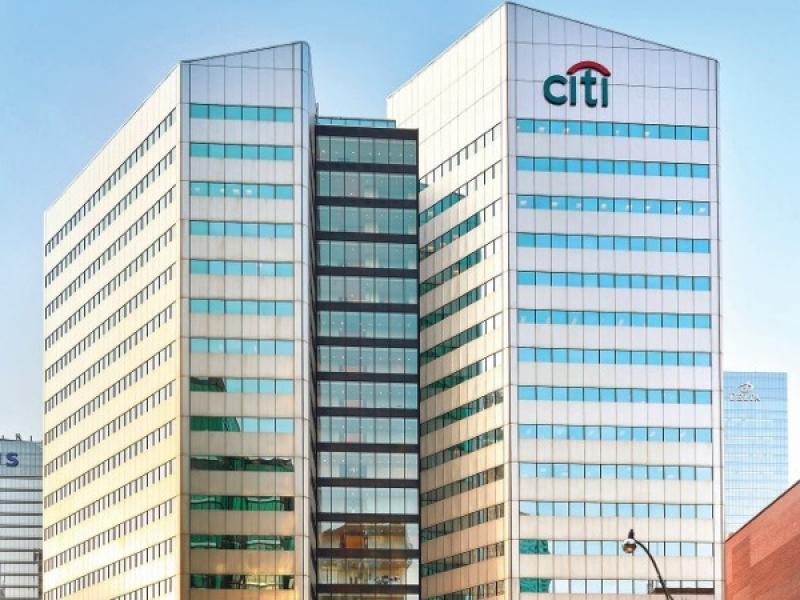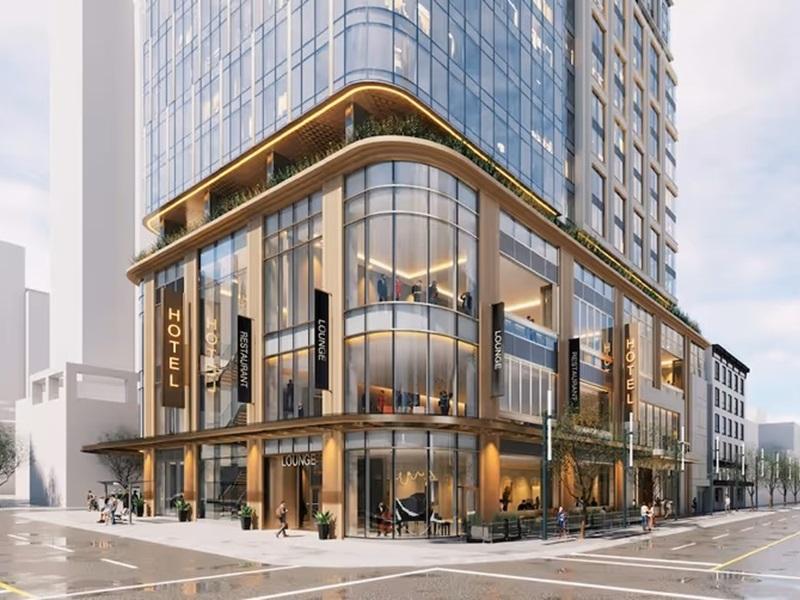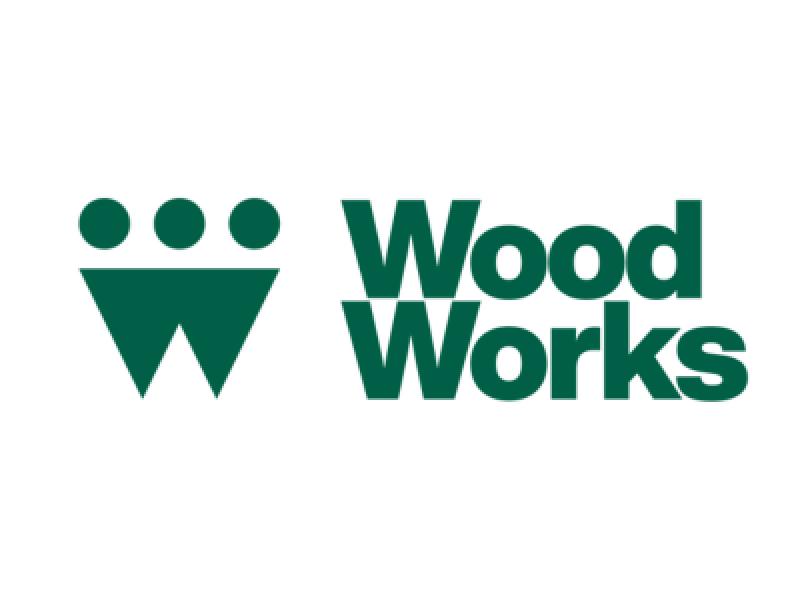
Panelists during the wrapup discussion at RealCapital 2020 in Toronto; from left: moderator Lesley Gibson of CT REIT, Don Clow of Crombie REIT, Kevin Leon of Crestpoint, Qahir Madhany of Blackstone, Chris Niehaus of BentallGreenOak, moderator Jamie Ziegel of TD Securities. (Steve McLean RENX)
The firms they represent own and/or manage about $210 billion in assets in Canada and around the world. So, when top executives from BentallGreenOak, Blackstone, Crestpoint and Crombie REIT sat down to talk commercial real estate investment strategy at RealCapital at the Metro Toronto Convention Centre in February, there was plenty of experience and expertise at the table.
“Big global investors need to provide greater returns and they’re moving more and more into alternative investment classes,” said BentallGreenOak managing partner Chris Niehaus. “Real estate is one of them.”
Niehaus and the rest of the panel were responding to questions from moderators Lesley Gibson, CT REIT‘s chief financial officer, and TD Securities managing director and head of property brokerage Jamie Ziegel.
BentallGreenOak
BentallGreenOak was formed in 2019 as a result of a merger between Bentall Kennedy and GreenOak Real Estate. The global real estate investment manager has a presence in North America, Europe and Asia and has about $50 billion of assets under management.
“Investors increasingly are looking for diversification by geography as well as risk profile,” said Niehaus.
BentallGreenOak’s portfolio is comprised primarily of office, industrial and multifamily properties in addition to some retail.
Niehaus said the firm is looking to work with investors inside and outside of Canada, and wants to get outside investors more interested in the Canadian real estate market.
BentallGreenOak has a major multifamily development program in Canada, and is investing in industrial space in Europe where industrial penetration is dramatically lower than in the United States.
While Japan has negative population growth and more people are leaving the workforce than joining it, Tokyo is growing and offers opportunities to buy unstabilized assets Japanese institutions are uncomfortable with purchasing.
Niehaus said BentallGreenOak can acquire and improve these properties, then sell them into the Japanese REIT market.
Niehaus said there were $800 billion in commercial real estate transactions around the globe in 2019 and the U.S. is the most liquid market.
While Paris was the most active city by transaction volume last year, Niehaus said the next six most-active cities were in the U.S.
“We tell investors that we have a well-defined view of what we think is a good investment and if we find it we’ll make it,” said Niehaus. “If we can’t, in the worst case we’ll return the money.”
Blackstone
Blackstone real estate group managing director Qahir Madhany said his company is looking for real estate investment opportunities related to “urbanization, technology and disruption.”
It is “picking the spots where you’re going to see outsized growth and following the trends and making sure you’re tracking where the smartest, youngest people want to live, and what sort of lifestyle they want, and investing around those themes.”
These markets include San Francisco, Seattle, Austin, Nashville, Toronto and Vancouver in North America.
Madhany said Blackstone bought an 80 per cent stake in Vancouver’s four-building, 1.45-million-square-foot Bentall Centre (Los Angeles’ Hudson Pacific Properties acquired the remaining 20 per cent) from Anbang Insurance Group in 2019 because Vancouver is a similar market to Seattle, where it’s already a large office space owner.
Blackstone, which manages more than $150 billion in equity around the world through a variety of investment vehicles, has a major focus on industrial real estate.
Madhany said it has bought one billion square feet of industrial space since 2010, attracted to its “limited supply, low vacancy rate and large uptick in technology.”
The New York City-based private equity giant acquired a 62 per cent stake in Canada’s Pure Industrial REIT in 2018. Montreal-headquartered Ivanhoe Cambridge purchased the remaining 38 per cent.
Madhany said Canada used to trail most of the rest of the world in industrial rent growth but had a low vacancy rate. Now it’s one of the top global markets for industrial rent growth.
Blackstone is deploying more capital year-over-year, but Madhany said it only invests in global themes and sectors it feels are outperforming the general economy.
“You’re not going to see us buying class-C suburban office because we have capital to deploy,” he said.
Suburban companies that want to attract talent are looking to move to city centres where current and potential new employees prefer to live and work.
Suburban office markets, Madhany believes, will improve in cities where urban supply can’t meet demand.
Crestpoint Real Estate Investments Ltd.
Crestpoint Real Estate Investments Ltd. is part of Connor, Clark & Lunn Financial Group, a Toronto-headquartered firm whose affiliates collectively manage $79 billion in assets for individuals, advisors and institutional investors.
Crestpoint was founded in Toronto in 2011 and has about $5 billion of assets under management through more than 200 office, industrial and retail properties. Most are in Canada, with a few in the U.S.
Crestpoint’s main product is a core-plus open-ended vehicle funded 70 per cent by institutions, primarily mid-sized pension funds. The remainder comes from high-net-worth investors.
President Kevin Leon said its fund is about 42 per cent levered, which he conceded is high for a core-plus fund. However, that’s down from a high of 55 per cent.
“Using leverage strategically, we think, makes a ton of sense since we’re in a low-interest-rate environment,” he said.
Crestpoint has had a 7.5 per cent income return since inception, Leon said, and a 14.7 per cent total return since inception.
The commercial real estate investment manager is involved in joint ventures on projects across Canada with developers and pension plans.
These collaborations allow Crestpoint to use the skill sets of its partners, since the 30-person firm doesn’t do property management and uses outside managers for development.
Crestpoint bought 1.5 million square feet of industrial space and 80 acres of land in Brantford, Ont., three years ago before the industrial sector really heated up. That land now has approval for a subdivision.
Leon said there are retail locations in the Greater Toronto Area with lower rents than industrial properties. Crestpoint is looking for opportunities to convert retail properties to industrial to get higher rents.
The firm had avoided the Calgary office market until it made two purchases in the Beltline early this year. Leon acknowledged there’s leasing risk in the market, but feels it’s a large and livable city with the infrastructure and talent to get it through this “horrific time.”
Crestpoint bought an office building on the Vancouver-Burnaby boundary, where zoning allows it to build from 1.5 million to two million square feet of residential over a long period of time.
“We don’t have any multifamily as of yet, which in hindsight was a mistake, although we have a few properties that we can develop multifamily on,” Leon said. “It is a sector that we’re looking to enter into this year, both through development and through acquisition.”
Crombie REIT
Crombie REIT has a $4.7-billion, 17.6-million-square-foot portfolio of 285 properties across Canada that’s 90 per cent grocery store-anchored.
President and chief executive officer Don Clow said the New Glasgow, N.S.-headquartered company has its highest occupancy rate and liquidity ever and its retail properties are performing well.
Forty per cent of Crombie’s ownership is by Empire Company Limited, owned by the Sobey family, which has been in the grocery business for more than a century and has a generational outlook on returns.
“Retailers are smart and very strategic, and they recognize that the real estate is one of their most strategic assets,” said Clow. “For us, it’s about maximizing our relationship with Sobeys. You can participate in their growth platform, which is exceptionally ambitious.”
Five per cent of Crombie’s portfolio is retail-related industrial space. Clow said that will increase to 10 to 15 per cent over the next decade as home grocery delivery becomes more prevalent and more storage and logistics space is needed.
The grocery e-commerce strategy relies on hub and spoke delivery. Space for that can be added to existing grocery stores, while even companies as large as Amazon have to build that infrastructure in Canada.
Clow said there’s a move from 50,000-square-foot grocery stores to 35,000-square-foot stores and repurposing the remaining 15,000 square feet as quasi-industrial space or leasing it to other tenants.
Crombie has a $5-billion mixed-use residential development pipeline that could double the size of the company in the next few years. Clow said $3.2 billion of that is in Vancouver.
Co-developments are necessary for Crombie to build residential, because it wants to work with companies that have experience in the sector and the market.
Crombie is currently working with Westbank in Vancouver and Prince Developments in Toronto and Montreal.







